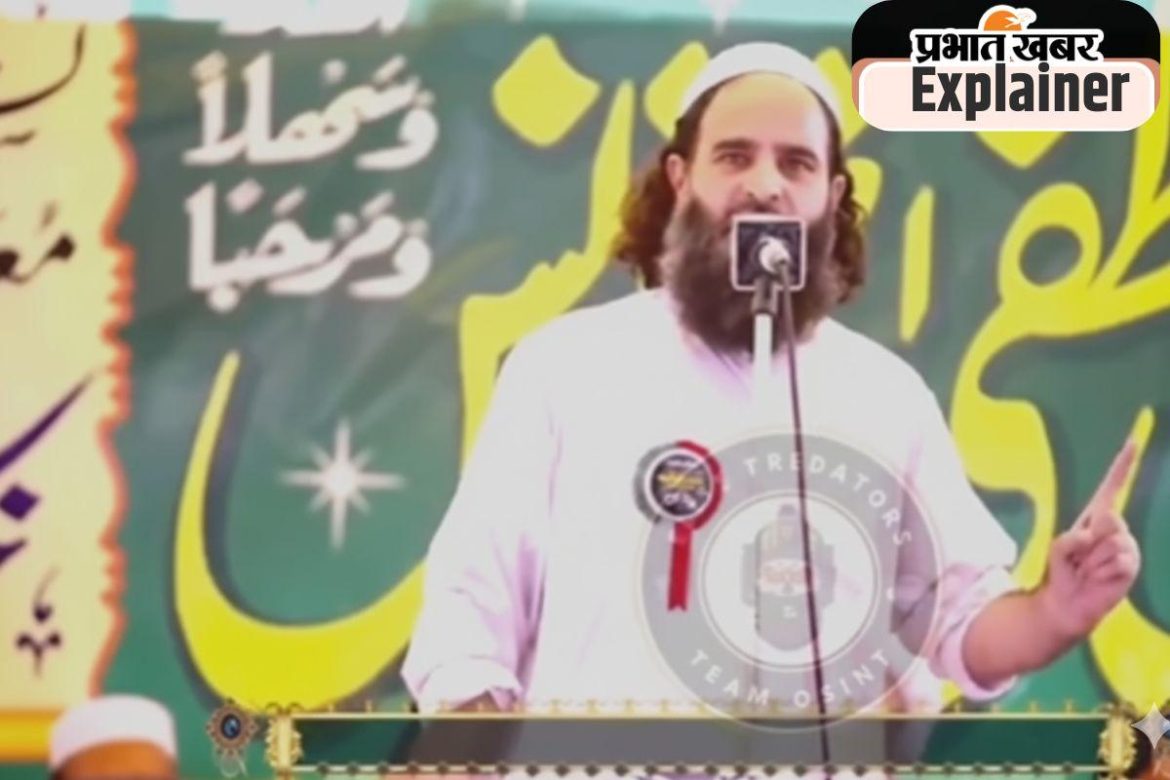Explosive Claim from Within: A Peek Into Pakistan’s Support for Terror Networks
A sensational confession by a former top commander of the terror group Jaish-e-Mohammad has sparked renewed scrutiny of Pakistan’s army and its alleged patronage of cross-border militancy. The claim, made by veteran jihadi leader Ilyas Kashmiri, has sent ripples across intelligence communities and diplomatic circles alike.
Background: Who is Ilyas Kashmiri?
Ilyas Kashmiri was long considered one of the most dangerous jihadist figures in South Asia. He once ran Brigade 313, a unit closely linked with al-Qaeda and Jaish-e-Mohammad. Captured transcripts and declassified interrogations now reveal that Kashmiri has provided sensitive details, including naming General Asim Munir, the Chief of Army Staff of Pakistan, in connection to orchestrated military sympathy toward terror group operatives.
Bombshell: Army Officers Told to Attend Terror Funerals?
This is where things get uncomfortable. Kashmiri reportedly said that General Asim Munir instructed serving Pakistan Army officers to attend funerals of those killed in terrorist operations carried out under the banner of “Operation Sindoor.” These weren’t just any militants. The operation allegedly involved direct attacks against Indian military and civilian targets.
“General Munir made it clear. Attendance wasn’t optional. We were told to honor the martyrs of Operation Sindoor,” Kashmiri is quoted as saying in one internal dossier.
It’s hard not to pause at that claim. If true, it suggests far deeper ties between Pakistan’s military structure and banned terror outfits than Islamabad officially admits. The very idea that state officials were honoring known terrorists gives shape to long-held suspicions.
Masood Azhar Named in Major Attacks
The revelations didn’t stop there. Kashmiri also confirmed that Maulana Masood Azhar, founder of Jaish-e-Mohammad, was personally involved in planning multiple terror strikes in India. He specifically mentioned attacks in Delhi and Mumbai — cities that have frequently found themselves in the crosshairs of Pakistani groups.
“Azhar was not just a preacher. He was operational. Delhi, Mumbai—he planned them,” reads part of the report citing Kashmiri’s words.
You might remember the 2001 Parliament attack or the 2008 Mumbai siege. While Azhar’s role has long been suspected, this internal confirmation from a former operative adds a new layer of accountability.
Why the Silence From Pakistan?
One of the most puzzling pieces in this ongoing mosaic is how the Pakistani government continues to deny ties to known terrorists even as internal accounts like these emerge. This isn’t the first time allegations have surfaced. But it might be the first time a high-level operative has so vividly connected the dots — implicating both the state and its military command.
International responses have often been mixed. While India has repeatedly laid out dossiers, accused Pakistan at international forums, and pushed for UN sanctions against figures like Azhar, progress has generally been slow-walked. Still, recent developments could change that.
Timeline of Events
- Early 2000s: Ilyas Kashmiri operates as militant commander; maintains close links with Pakistan’s security apparatus.
- 2008: Mumbai terror attacks kill over 170; Masood Azhar’s role suspected but not confirmed.
- 2023: Intelligence intercepts suggest Army officers attending funerals of Jaish terrorists.
- 2024: Kashmir’s confession breaks into public domain, naming General Asim Munir and Masood Azhar in subversive operations.
Regional Fallout
These claims could strain already fragile South Asian diplomacy. India and Pakistan have fought wars and skirmishes over terrorism — particularly in Kashmir. The new revelations validate New Delhi’s position, which has consistently warned international bodies about Pakistan’s complacency, if not outright support, in harboring fugitives like Azhar.
- Renewed calls for sanctioning Pakistan-based groups.
- Potential pressure on the Financial Action Task Force (FATF) to re-review Pakistan’s compliance.
- Questions over U.S. and China’s influence in shielding or exposing such activities.
One intelligence analyst, preferring to stay anonymous, told a regional outlet: “Pakistan may find itself out of excuses. You can’t keep claiming plausible deniability when your former commanders are admitting all this.”
Official Statements
As of now, the Pakistan Army has not responded to the allegations directly. The Ministry of Foreign Affairs released a brief statement saying:
“These are unverified and baseless accusations aimed at maligning Pakistan’s institutions. We reject them in entirety.”
But the lack of detailed rebuttal and the silence on Ilyas Kashmiri’s confession seem more telling than any carefully worded press release.
Community Response and Regional Concern
In India, the reaction has been swift. Social media users, political leaders, and think tanks have seized the moment to renew demands for a tougher global posture on Pakistan. Some ask—why should a country that seemingly celebrates terrorists continue to receive international aid or trade benefits?
Even in Pakistan, muted dissent has started creeping into select journalistic commentary. You might have seen a few bold voices on X (formerly Twitter) calling for introspection around the army’s influence on national policy, especially regarding foreign affairs and regional peace.
Looking Ahead
Will this be a turning point? Hard to say. Governments don’t often shift routes based on a single confession. But when those words come from a man like Ilyas Kashmiri—a man once deeply embedded in the system—it’s not something you ignore.
In a region where perception often becomes policy, this might just change both. Or at the very least, shake things up long enough to demand a firmer response.

